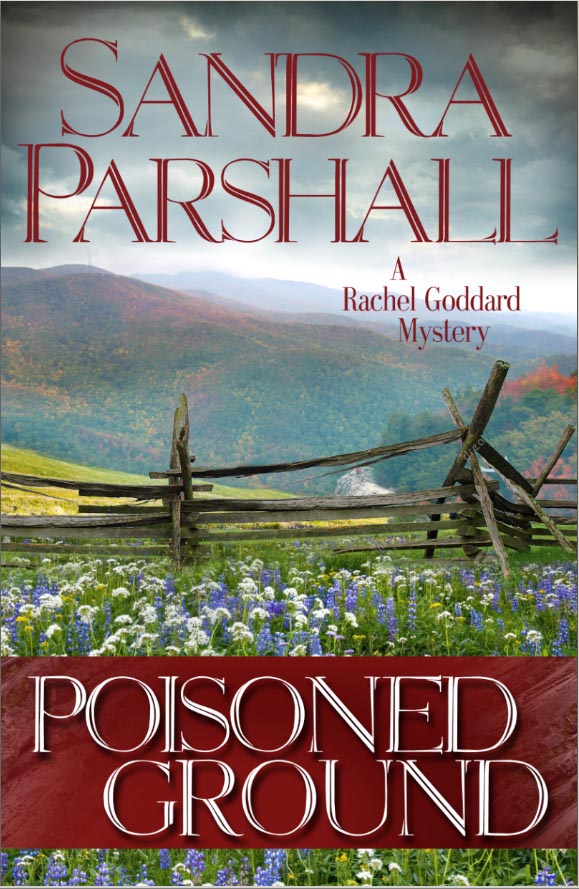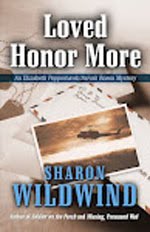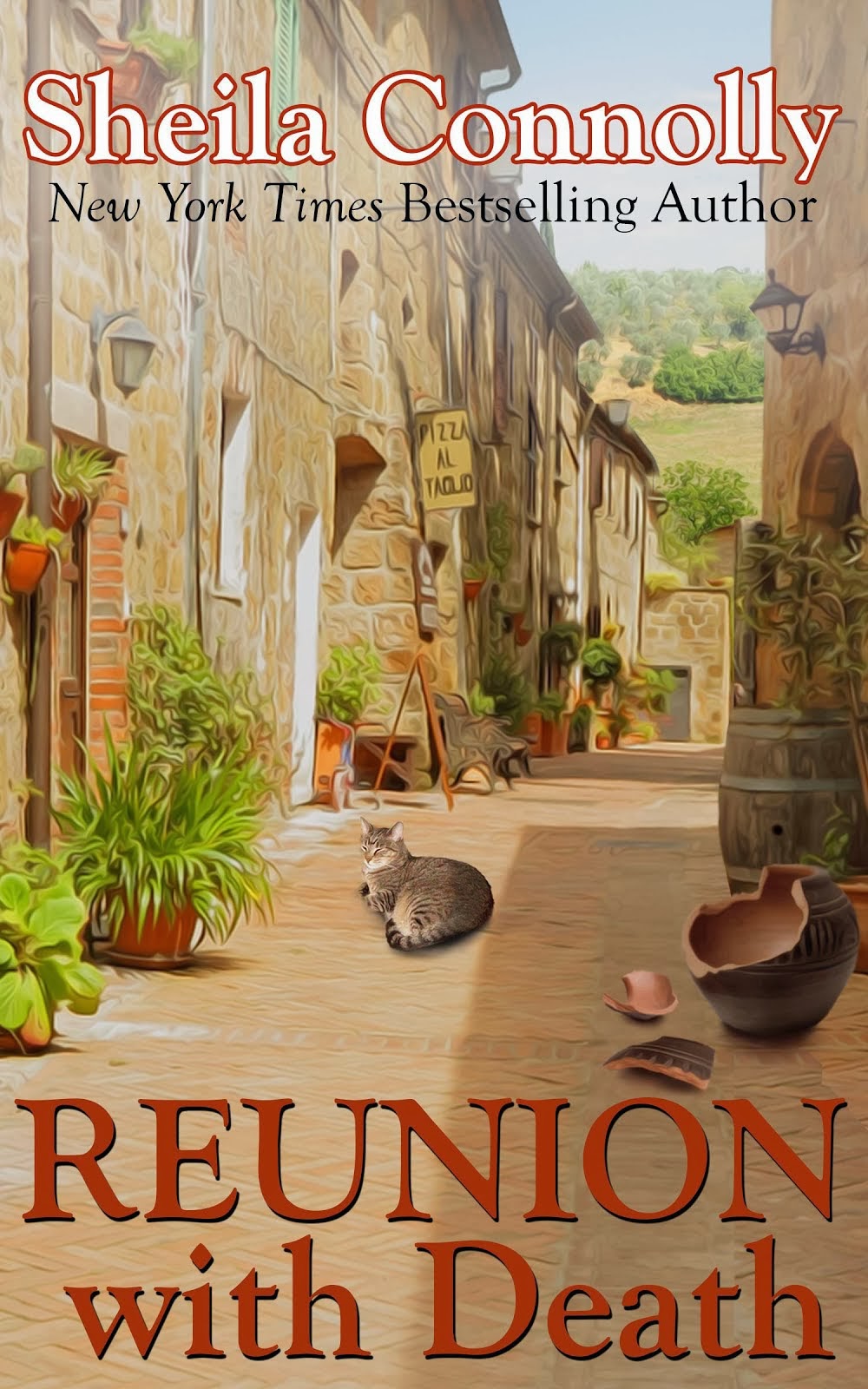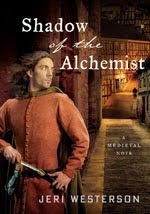Interviewer: Elizabeth Zelvin
When and how did you decide to become a writer?When I was seven. There was a talent show at school, and I whined that I didn’t have any talents. Desperate, my mom said, “I think you have a flair for writing.” Think about it—seven-year-olds can barely read, much less write! But I wasn’t old enough to see through it, and the idea sure was appealing—reading was already my favorite thing. So I bought right into it.
You’ve worked as a newspaper reporter. What was that like for you?Great! It’s the perfect way to learn not to be afraid of a blank page—if your deadline’s in five minutes, you better have a story in five minutes. Also, it’s a wonderful way to make a living writing something while gathering life experience for fiction. That is, if you’re young. I don’t think I’d try it now.
What other “day jobs” have you had, if any?I was a copywriter for Banana Republic back when they had a fabulous, funky, funny catalogue. In fact, Elaine on Seinfeld could have been modeled on me—or at least her job could have. We taught J. Peterman all they know about catalogue copy. (She said modestly.) Also, Marcia Muller and I and another writer supported ourselves for a few years with what we called an “editorial consulting service” named Invisible Ink, which meant we were fancy free-lancers. At least we thought we were fancy.
Then there was the time I did PR for the San Francisco District attorney’s office…learned a whole lot from that one. Oh, and one more thing-- I have a PI license, which I got because of my PI character, Talba Wallis, but I only do pro bono PI work—like if somebody needs a sweetie snoop on their boy friend.
But I’ve got a new one now I’m really excited about— it involves teaching writing in a unique way. But I’ll get to that later.
Did getting your first novel published come easily or was it a long journey? Long,
long journey. Six books, seven years, hundreds of rejections, beaucoup pain, misery, suffering, the whole thing. Everyone feels bad about herself in that period, but if you’re on your own, which I was, the poverty really gets you down. I was about to go back and get a master’s in something useful when I finally sold! I always tell my students to prepare for the long haul, but sometimes I hear that desperate note in their voices that I recognize only too well and have to go into Aunt Julie mode. (Which involves a little bucking-up and a lot of listening.)
You’ve written four different mystery series: the Paul McDonald books, the funny ones about lawyer Rebecca Schwartz; the acclaimed Skip Langdon series set in New Orleans, and most recently the PI Talba Wallis books. Why mystery? Love mysteries. Always have. And weirdly enough, when I was just a sprout reading Arthur Conan Doyle and Agatha Christie, they seemed so much more intellectually spectacular than other novels—all that figuring things out. Of course little did I know there were other ways of being intellectually spectacular—I just wanted to see if I could do what they did. I thought I’d really be something if I could. Okay, I was naïve, but it’s still a pretty damned satisfying gig.
What do you like about the series form? Will you ever write a standalone?The great thing about a series is that you can follow the character through life—the books can become a multi-volume biography as well as individual stories. Look at Marcia Muller's Sharon McCone series—she’s really taken that idea to a high art. We should all aspire to keep our series so fresh and surprising.(The other good thing about them is the steady paycheck.)
But I’d love to write a standalone. In fact, I thought I had, three times! I never meant the first Rebecca Schwartz, Paul Mcdonald and Skip Langdon books to be series till the publisher suggested it. By the time Talba Wallis came along, though, I’d figured the game out. Very quick on the uptake.
Detective Skip Langdon has been very popular with mystery readers. What prompted you to introduce Talba Wallis?I needed her! What I mean is I a needed a character in a Skip Langdon book who could act as an undercover PI in an office. The profile in New Orleans: Young, female, African-American, highly computer literate. So that’s how she started. She developed into much more—who knew she was a poet? And she turned out to be so much fun (if I do say so myself) that I actually had several complimentary reviews saying she should have her own series. That gave me such a big head I went right out and talked my editor into it. I was craving something lighter--ready for a break from all the family drama and soul-searching and playing by the rules in the Skip Langdon novels. By rules, I mean cop rules—Skip just can’t go breaking too many of them and still keep her job. But Talba commits felonies right and left in the course of her investigations—my kind of woman.
In 1991, New Orleans Mourning won the Edgar for Best Novel. Did getting the award change anything for you, and if so, what or how?It changed everything—that is, if the difference in hanging on by your fingernails and making a living—even a good living—at your chosen profession could be said to be everything. (If you've been there, you know what I mean—money isn’t everything, but if you’re poor, it sure seems like it is.) Suddenly I had the first good offers of my life, which I quickly snapped up. And I went right out and bought a house. Also, the Edgar made a big difference in the way people, both editors and mortals, looked at me—some that I’d known for years suddenly knew my name. Kind of made me feel bad about the human condition, actually—I was still the same old person. But not so bad I couldn’t get used to it.
New Orleans is a unique environment with a culture all its own. I’ve noticed that you start many of your novels with some aspect of New Orleans lore. What has it meant to you to use New Orleans as a setting—I want to say as a character?You’re right—I do consider New Orleans a character in my novels, and always one of the most important. It’s wildly different writing books set in New Orleans and in San Francisco—people are shaped so much by their surroundings that the setting actually goes pretty far in determining what your characters will be like. The same people could exist both places—you could put a California health nut in New Orleans, for instance, and I’m sure I must have at some point-- but you’d be missing a real opportunity if you didn’t explore what makes people unique to a region. I guess what New Orleans has meant to me is …pretty much all I could ever ask, in terms of a home and a setting. I couldn’t have a richer lode to mine.
You’ve taken what many writers would consider a big risk in using the point of view of African American as well as white characters. Has that been a challenge?
Have you ever gotten any flak about it, or kudos for that matter?Yes, that was pretty nervy of me, but what I’m always saying is that Talba’s being black isn’t nearly so foreign to me as her encyclopedic computer literacy. Now that’s scary to me, and to tell you the truth, I think I probably pull off her ethnicity more convincingly than her geek-hood. At least the geek thing makes me more insecure. Still, it’s always a challenge to put yourself in any character’s shoes. I did take the precaution of making Talba a character who speaks standard English (except in her poetry)—I knew dialect wasn’t going to work coming from a white person, even in the unlikely event I got it right. So far I’ve been lucky not to get flak about Talba, but maybe people are just being polite. As for kudos, I can’t remember any public ones (like reviews that say I really get it for a white chick), but it’s been very gratifying to get notes from African-American fans who like her.
Can you tell us a little about your personal experience of Hurricane Katrina?The short version is that we lucked out—didn’t lose so much as a shingle. Thanks be. But there was a little drama. Our housecleaner and friend, Debbie, like so many New Orleanians, refused to leave her cat. A lot of people don’t realize that staying to take care of animals was one of the top reasons people didn’t evacuate. Debbie lives two blocks from us in a small outbuilding that looks like a lesser wind than Katrina could blow it away, so we prevailed on her to stay (cat and all) at our place, which is in an extremely stable building on the third floor. But here was our mistake—at the last-minute, we said, oh, heck, why take the cats? Debbie can take care of them for a couple of days. Debbie was glad to, but if any of us had had a clue…
Once the city flooded, of course my husband and I were overcome with guilt at burdening Debbie with two animals besides her own, and also worried about her and the cats. A frantic twelve days followed, in which Debbie did manage to call out once (on the only working line in the French Quarter, where people lined up to use the phone), but only to say that she wasn’t leaving unless they dragged her out.
But finally we got this call: “Hi. I’m in Baton Rouge with three cats.” Studiedly casual. Boy, was she proud of herself. She’d gotten out on a “pet bus” a religious group had organized for people just like Debbie—who wouldn’t leave their animals.
We retrieved her and the felines in a 17-hour round-trip from Dallas to Baton Rouge and all four were fine, but Debbie was a different color every day for the first three days. It took that long for the residue of 12 days in a smoky, furnace-hot, debris-filled city to wash off her.
New York writer SJ Rozan has said that after 911 she feared she would never write again. How has Katrina affected your writing, especially your ability to write about New Orleans?I can’t tell you how many fiction writers in this city I’ve heard say that! But I guess we all do, eventually, and so did Shira. In fact, she exorcised her demon by actually writing about The Thing, and maybe that’s what I’ll end up doing too. When you realize that where you live is irreparably changed forever, it’s hard to imagine what it’s going to be like in a year or two years (one to write the book, and another to get it on the schedule). So what are you going to write? I’m still trying to figure that one out. The next book may not be set in New Orleans at all, and probably won’t be a mystery, either. I’m not sure why, except that everything’s different, so I see things differently.
Your career has taken a new turn recently. What would you like to tell us about the courses you’re offering for writers?I thought you’d never ask. :) Last November I started a business called
WritersTrack, which offers writing courses by conference call. The exciting things about it are that anyone can take the class from anywhere in the world and the whole class can actually talk to each other in real time! You couldn’t do this a few years ago, when online classes became popular—new technology makes it affordable and also offers excellent sound quality. I started the business as a way of controlling my own life—after twenty-five years of being subject to the whims of publishing, I just had a need for a little autonomy. I mean, if my classes don’t fill up, it’s not because some publisher dropped the ball, it’s because I did.
Are you working on a new book now? What’s next for Julie Smith?Oh, another good question! Because I have a book out this month. Well, actually an anthology—
New Orleans Noir, part of Akashic’s Noir series. And because I didn’t write it (except for one tiny story, I mean; you’ll hardly notice it), I actually have the nerve to tell you I think it’s terrific. I really do. Something about Katrina made these authors write so powerfully and passionately about the city that, as a collection, it just about takes the top of your head off. Well, maybe I’m prejudiced.
Anyhow, in addition to old favorites (Ace Atkins, Laura Lippman, Barbara Hambly), and local ones, it introduces two terrific new writers, Ted O’Brien, who was a true virgin, publication-wise, and Jeri Cain Rossi, who had some small-press publications, but who enters the mainstream (ta-da!) with a great story about a woman who decides after the storm to make the city and herself and everything else whole again by the simple and obvious expedient of sleeping with a hundred men—with extremely noir results. Jeri is clearly an insanely twisted person. I like that.
And wait’ll you read Laura’s story. You’ll sleep with the lights on for months.
Okay, I’m acting like a proud mom. But one more thing—part of the proceeds go to the New Orleans Public Library, so you really should... uh-oh, here comes the hook. Bye now. It’s been... Ouch! That thing’s sharp.


















